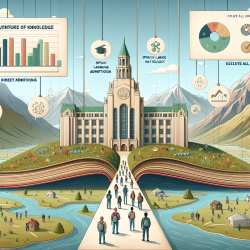The field of urban ecology has evolved significantly over the past few decades, largely due to the integration of environmental justice considerations. This shift is exemplified by the Long-Term Ecological Research (LTER) program and the Baltimore Ecosystem Study (BES), which have highlighted the importance of understanding how socio-ecological systems function in urban environments. For practitioners in the field, these insights offer valuable lessons for improving ecological outcomes and addressing systemic injustices.
The Evolution of Urban Ecology
Urban ecology has traditionally focused on the biophysical aspects of cities, examining how natural systems operate within urban landscapes. However, as cities have grown and become more complex, researchers have recognized the need to integrate human dimensions into ecological studies. The LTER program, initiated by the National Science Foundation, has played a pivotal role in this evolution by supporting long-term research that includes human impacts on ecosystems.
The BES project is a prime example of this approach. It began as a response to the growing awareness of environmental justice issues in urban areas. By examining the interplay between ecological processes and social dynamics, BES has provided a comprehensive understanding of how cities function as socio-ecological systems.
Key Insights from the Baltimore Ecosystem Study
One of the critical insights from BES is the recognition that environmental injustices are often rooted in historical and systemic inequalities. For instance, research has shown that racially segregated neighborhoods in Baltimore experience disproportionate environmental burdens, such as higher exposure to pollutants and reduced access to green spaces. These findings underscore the need for practitioners to consider historical contexts when addressing current ecological challenges.
BES has also demonstrated the importance of community engagement in ecological research. By involving local residents and stakeholders in their studies, researchers have gained valuable insights into the lived experiences of those affected by environmental injustices. This participatory approach not only enriches scientific understanding but also empowers communities to advocate for equitable solutions.
Applying Research Insights to Practice
For practitioners looking to enhance their skills and impact, there are several ways to apply these insights:
- Integrate Social Dimensions: Consider how social factors such as race, class, and access influence ecological outcomes. This holistic approach can lead to more effective and equitable interventions.
- Engage with Communities: Foster partnerships with local communities to ensure that research addresses their needs and priorities. This collaborative approach can lead to more sustainable and accepted solutions.
- Focus on Long-Term Impacts: Recognize that ecological changes occur over extended periods. Long-term monitoring and research can provide critical insights into how interventions affect socio-ecological systems over time.
- Pursue Further Research: Stay informed about emerging trends in urban ecology and environmental justice through conferences, publications, and webinars. Continuous learning will help practitioners stay at the forefront of the field.
The Global Relevance of Urban Ecology
While BES provides a detailed case study from the United States, similar dynamics are at play globally. Urban areas worldwide face challenges related to environmental justice, making it essential for practitioners to consider international examples and collaborate across borders. By sharing knowledge and strategies, practitioners can develop innovative solutions that address both local and global challenges.
Conclusion
The integration of urban ecology with environmental justice offers a powerful framework for understanding and addressing ecological challenges in cities. By applying insights from research like BES, practitioners can enhance their skills and contribute to creating more just and sustainable urban environments.
To read the original research paper, please follow this link: Forging just ecologies: 25 years of urban long-term ecological research collaboration.










